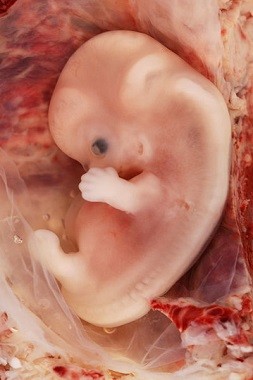
Scientists have developed a new technology through which prospective parents can now have a glimpse of their baby's health and physical traits, much before it is even conceived.
The new 'Matchright technology' allows couples to choose sperm donors and create a digital embryo by virtually mixing the donors and the aspired mother's DNA. The technology will allow parents to screen out genetically disordered genes and thus reduce the risk of genetically inherited diseases.
The technology, which will soon be implemented in two American fertility clinics, could even give clear glimpses of the child's eyes, height, skin pigmentation and waist size, apart from the health-related risks.
"It covers any disease or any trait that has a genetic influence," said Lee Silver at Princeton University, co-founder of GenePeeks, the company involved in marketing the technology.
GenePeeks plans to apply the system to identify rare genetic conditions, such as Tay-Sachs and cystic fibrosis disease, which gets carried on to a child when both parents bear a mutated or disordered gene.
In order to screen genetic disorders, DNA sequencing of the prospective parents is carried out. But GenePeeks takes a further step in the screening and uses algorithms called 'Matchright algorithms' and, with its help ,digitally recreate the procedure of combining genetic information between an egg and a sperm, according to New Scientists.
However, the system will be well accepted only when a few numbers of children are born using this technology. Though the system may help couples opt out certain donors, it does not necessarily rule out the possibility of any mutation that might crop in during the embryo development or post-conceiving.
(Ed: VP)
Photo credit: Wiki Commons/Ed Uthman

















